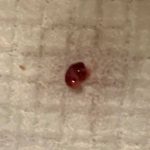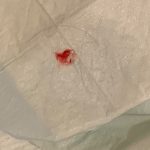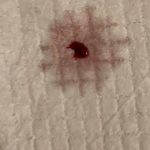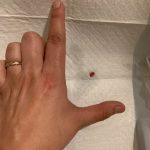Hello,
Wowza. That’s quite a story. I think I would recommend the following options to discuss.
1. Seek a feline exclusive practitioner. If available they are really helpful for the tough cases.
2. Consider an ultrasound.
3. Add cosequin daily
4. Consider an iv fluid hospitalization to really flush out the bladder
5. Xray of the body. May or may not need to do if doing ultrasound
6. Add a fountain, feliway and lots of litter options. Even a very low litter box like a baking sheet.
7. Environmental enrichment. Toys. Catnip. Window seat with bird feeder view. Etc.
Let me know what happens.












Good morning- sorry you are having such a time with all of this. I am thinking that an X-ray won’t show much because a polyp is soft tissue. It is my understanding that an X-ray will only show bone? I am guessing you would need something along the lines of a CT scan to check where and what size any soft tissue mass would be. I’m thinking you should sit down with your vet and have a frank discussion about budget and options and explain your thoughts. At the end of the day- you both want what is best for your cat. Perhaps in talking through it, you both can come up with something that you’re both comfortable with. Best of luck !!????????